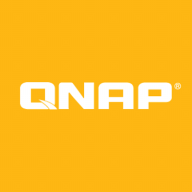


IBM Cloud Automation Manager and QNAP Cloud Solutions are competing platforms in the cloud management space. IBM Cloud Automation Manager stands out due to its stronger enterprise integration and automation, whereas QNAP shines with its storage-focus and cost-effectiveness.
Features: IBM Cloud Automation Manager offers multi-cloud orchestration, resource optimization tools, and extensive integration within enterprise environments. QNAP Cloud Solutions provides advanced storage management, data protection capabilities, and superior storage optimization for businesses with large data requirements.
Ease of Deployment and Customer Service: QNAP Cloud Solutions is known for straightforward deployment, requiring minimal setup time, making it ideal for businesses wanting quick implementation. IBM Cloud Automation Manager involves a more intricate setup but ensures comprehensive support for complex integrations.
Pricing and ROI: IBM Cloud Automation Manager demands higher initial investment but promises significant ROI from automation efficiencies in large operations. QNAP Cloud Solutions has a lower upfront cost, providing quicker ROI for organizations focusing on storage cost benefits.

IBM Turbonomic offers automation, planning, and right-sizing recommendations to streamline resource management, improve efficiencies, and optimize costs across virtualized environments and cloud platforms.
IBM Turbonomic is valued for its capability to optimize resource allocation and monitor virtual environments efficiently. It facilitates automated decision-making in VM sizing, load balancing, and cost optimization for both on-premises and cloud deployments. Users can leverage insights for workload placement, ensure peak performance assurance, and effectively right-size across VMware and Azure. The ongoing transition to HTML5 aims to improve visual and navigational ease, while expanded reporting features are anticipated. Opportunities for improved training, documentation, and integrations enhance platform usability and functionality.
What Are the Key Features?In finance, IBM Turbonomic aids in maintaining platform efficiency during market fluctuations. Healthcare organizations leverage its capability for resource optimization during high-demand periods to enhance patient care support. Retailers use it for planning in peak seasons, ensuring resources align with fluctuating demand to maintain performance continuity.
IBM Cloud Automation Manager is a multi-cloud, self-service management platform running on IBM Cloud Private that empowers developers and administrators to meet business demands. This platform allows you to efficiently manage and deliver services through end-to-end automation while enabling developers to build applications aligned with enterprise policies. Using IBM Watson, you can optimize your landscape within minutes. You can achieve flexibility in your hybrid IT, gain speed through self-service access and maintain control through effective, enforceable governance and intelligent insights to ensure a safe and compliant IT environment.
QNAP Cloud Solutions enables seamless, efficient management of storage and network resources for tech-savvy users. It is recognized for strong security and ability to integrate with a range of technologies.
QNAP Cloud Solutions offers enhanced connectivity and security for data storage and management needs. It provides an intuitive platform for managing applications, infrastructure, and services. Users appreciate its scalability and robust security features, making it suitable for professionals seeking reliable data solutions. It continually evolves to incorporate innovative technology, catering to the specialized requirements of tech industries.
What are the key features of QNAP Cloud Solutions?QNAP Cloud Solutions is extensively implemented in industries requiring large-scale data management such as tech, finance, and healthcare. Its adaptability allows it to support complex operations, enabling industries to maintain high efficiency and security in their data processes.
We monitor all Cloud Management reviews to prevent fraudulent reviews and keep review quality high. We do not post reviews by company employees or direct competitors. We validate each review for authenticity via cross-reference with LinkedIn, and personal follow-up with the reviewer when necessary.